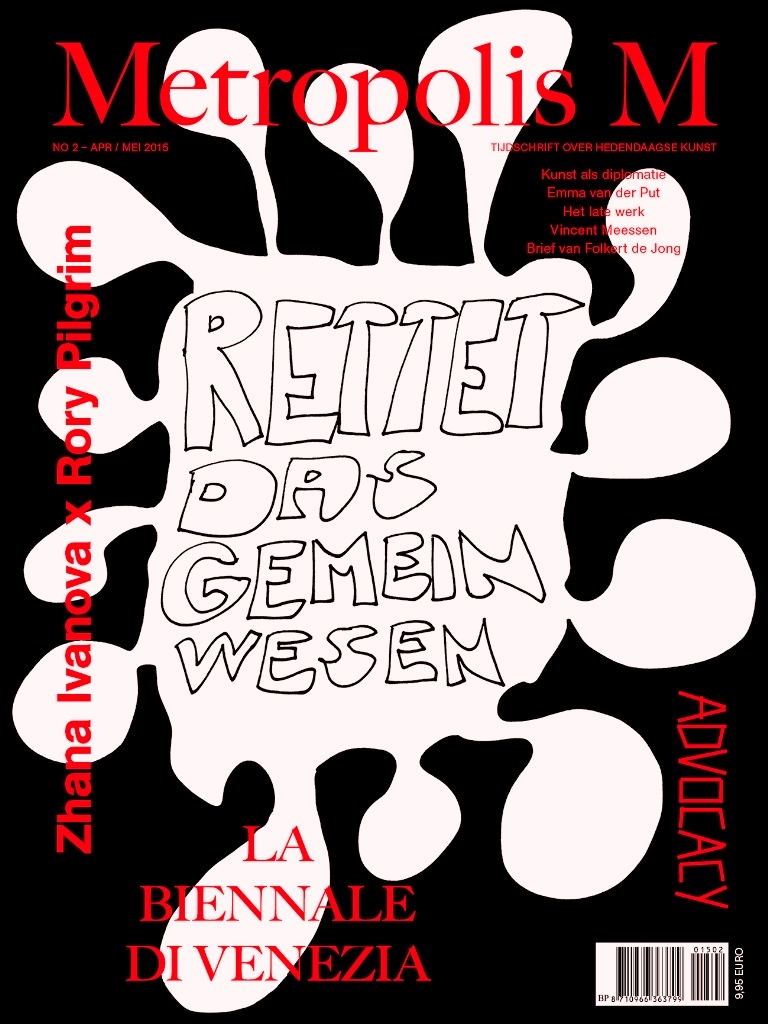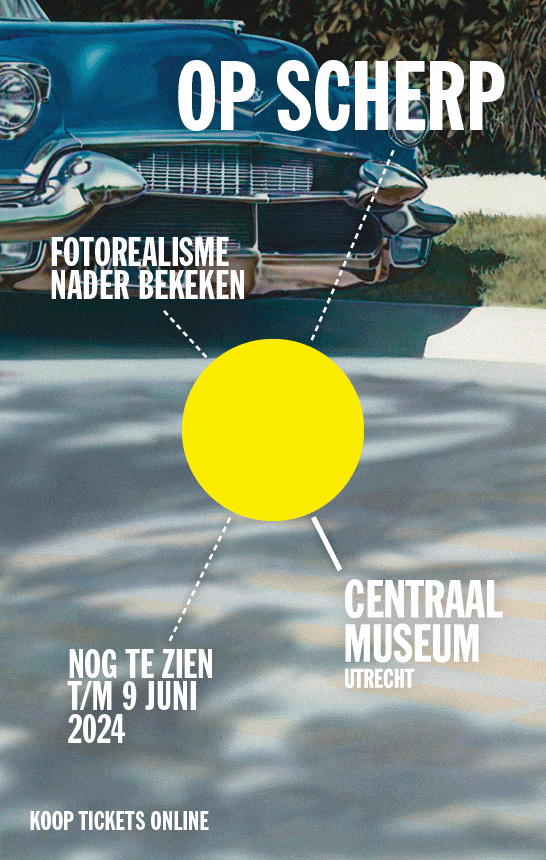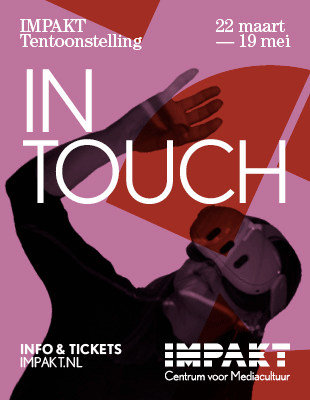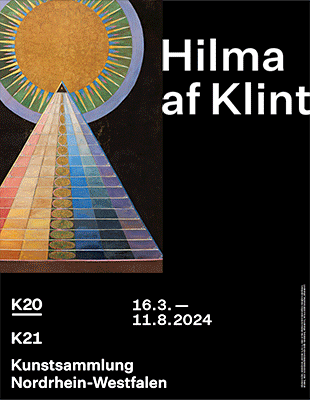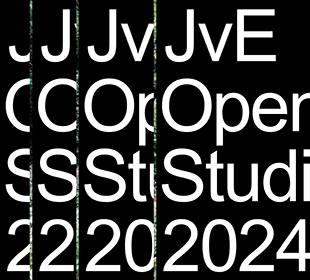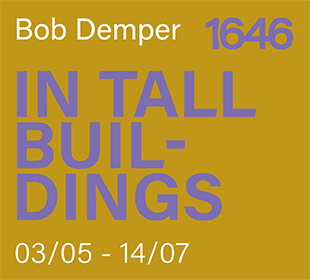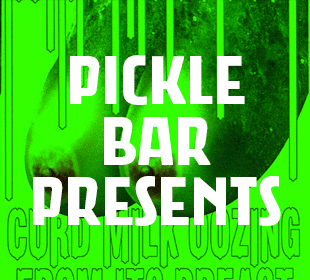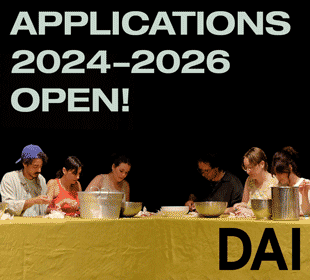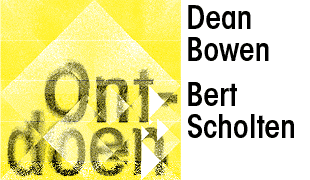Zhana Ivanova X Rory Pilgrim
Zhana Ivanova X Rory Pilgrim
The Calculated and the Spontaneous
At the request of Metropolis M, two of the most renowned performance artists living and working in the Netherlands got together and discussed their work. As they had never met before, their encounter had something of the flavour of a blind date.
To be honest, I don’t really like a lot of performances.
Oh, that’s funny.
But I don’t actually see enough of them.
I sometimes get nervous, seeing performances. I think I’m over-protective of myself, not wanting to see too muc I can get much more excited by other references; like, my boyfriend has shown me a lot of fashion shows recently and when I look at that, I think: ‘Wow, this is so inspiring.’
Me too. In the last few months, I have been using the trams more than before, so I have been hanging around at tram stops quite a lot, which is whole new aspect of Amsterdam for me. Watching people at the tram stops, trying to find a pattern in how they behave…. That’s a bit more my thing, having a look at something and trying to detect some regularity or irregularity.
Was this process of observation also part of your project for Land Art Live in the Flevopolder?
Yes, very much so, and the idea of being able to conduct what happens, or find a pattern that’s repeatable, and then insert things that put that pattern in a bit of a flux, interests me. I watched the Observatory by Robert Morris for a long time, and then realised there is a certain choreography to the way things move around there.
One of the struggles I have at the moment is compartmentalising different things. I don’t know if it’s the same with you. In the end I often think, ‘I’m not going to do any performance whatsoever.’
I think that every time.
I think it’s because the preparation involved is so intense, and knowing that it only functions for a short period of time. It’s partly because of who I am and what my interests are, but it’s so fragile. I feel like a performance can fall apart at any moment. It is also a mental preparation.
The nerves.
Yes, the nerves… in some way it does have to be very secure, but at the same time, it has to have a degree of vulnerability.
That’s an interesting question, actually: To what extent do you prepare? I prepare like crazy. Everything is super-calculated and drawn out in advance with scores and diagrams. I really take care of that – because I like doing it also, making the scores. I need some solid spine to what I am preparing, because I see performance almost like a sculptural thing. It’s really scripted, but then I look for a set-up where all of that can be overturned – something like a counterpoint, which is very much an unknown. For example, often I will have unrehearsed people enact the scripts, and their reactions and particularities are that counterpoint. The script takes care of one thing, but then I always look for an element that will go a bit against that, to almost sabotage myself.
My background or interest is much more affiliated with social practice, working with people. I might work with a group over a period of workshops or meetings, for which it is really essential to be able to get to know one another and actually talk through a series of issues. It requires time and also quite a safe space to do that, so people can speak quite honestly about something and not be put in vulnerable situation. At the same time, nothing is scripted, so it’s building them up to a process in which they are comfortable about sharing something in public. That is not something that is completely rehearsed. I often see it as guiding people through a process in which they have to trust me, and when they get to actually doing it, that’s when it makes sense to them, what they’re a part of. Which is also very vulnerable for them, and for me.
How long does that process take?
For the Stedelijk in 2012, I worked with a group of teenagers for two months, both as a group and individually; I interviewed and had a talk with each of them. For other projects, it has been much shorter and could be just two meetings beforehand. However, working for quite short periods of time and then making a performance can sometimes feel rather traumatic. The feeling that this quite intense connection with a group of people who could be brought together especially for my work would not be sustained.
Do you remain in contact with the people you’ve worked with?
Sometimes. I’ve worked with a few of them again and by now, I have a group of people who are long-term collaborators.
Do you imagine a longer-term involvement with the people you’re working with now in Almere, or will it end when the project is over?
For me, it was important to work over the period of a year on the Land Art Live project. When I started, I wanted to try and work with an LGBT group, but we realised that a defined or locally organised group did not exist. We discovered that some people in Almere had a desire to create one, though, and the project stimulated them to get started. This has had quite strong implications for them in what role they can play for LGBT issues, education and the wider community in Almere. For me, these social effects or results of working were very hard to grasp in a short-term production, as they are very complex.
Is it important for you to work with people you know?
Depends, actually. There are people that I’ve worked with already for years; one actress, for example, is in almost all my projects. I work with Celine a lot for the graphics. So indeed, you build up kind of a team.
A cosmos.
Yes, a little cosmos with satellites and things, but it really depends on the piece. Sometimes, the more structured the score is, the more I need to bring in some unknown elements, because otherwise it’d be too rigid – and it’s probably still very rigid, I don’t know. I need to have a form in mind. In my case, I presume there is always an audience. So I ask myself: What is their position? Quite literally, sometimes: Where are they watching from, and how? A lot of the situations I create are not only to be looked at. The viewer completes them in a way by being present. In Predictions, the Land Art Live piece, everything that I arranged to happen could more or less happen on any day, except for some additional things that I did and structured, but if those people were not standing on a hill listening to the script in their headphones, nobody would have known there was a performance going on. Or in other situations, like in All the Players, the script is very visible; people read it and compare it to what they are seeing. And let’s say there are even more people in the role of a director – assuming, expecting and projecting … I try to come up with roles for the audience that are quite active, in an understated way.
I realise sometimes how hopeless I am at thinking about an audience. I’m usually so preoccupied with the people I’m working with and their experience of being a part of the work, rather than thinking about the audience who will come and see it.
Those people are also a kind of audience?
When it comes to my planning, I usually think metaphorically about the audience. For some works, I had a recurring image that the people I was working with were bonfires giving off smoke on a beach, and the audience would be this large sea in front of or surrounding them. The audience was therefore this mass made of individual waves, which has its own changing mood and uncontrollable essence.
For me, there needs to be at least one person who doesn’t know what happens next, to make it work. Only then can these highly designed situations unfold. I like the relation between the super-designed and the very spontaneous. I think in terms of composition a lot. I probably would have liked to be a musician or a filmmaker or something, and maybe I’ll become that later, but for now, it’s these public demonstrations of certain things that move. Not movement as in dance, but patterns or an order of some kind; I find that very beautiful. So it’s a lot more formal and a lot less theme-based to begin with.
I think I’m quite theme-based, and that’s why it takes me ages to arrive at how what I am doing will manifest itself, even though it is inevitable that its form will be a continuum of my previous work. It takes a long time for me to think in terms of form, because I may be preoccupied with certain questions or things going on, and it takes a long period of digestion for me to sift out the heart of what I have found or wish to pursue. It’s a bit like digging for gold through all of this stuff and sieving out all the dirt before I find the essence of the form or heart of what it is that I am doing. I am a musician, and composing music is very intuitive for me; but I am always surprised that I never start by thinking I am going to write a piece of music or by using a musical format. Perhaps because it is very embedded and natural to me as a form of expression, it becomes separate from my mental process, which I can get very lost in.
I read this article about an airport in my hometown that had not been used for a long time. In the 90s, some fortune-tellers predicted that aliens were coming to help us out of the crisis and their UFOs would land on that airport strip. Two thousand people turned up at the airport with bread and salt to meet the guests. They waited a long time and nobody came. Then the fortune-tellers said this was because the President didn’t show up: the aliens were insulted. In Predictions, some people arrive in a van and inspect the site for landing. They take measurements and make notes. They clean up little bits of rubbish from the ground, because they want to prepare the site for landing. Various stories are interwoven in my works, but I’m not so into pointing out what they are and what they are supposed to mean. I prefer to strip them of any connotation as much as possible, until the essential thing that remains is probably just the movements of the situations, or the points in space, and then try and see what they mean…
At a certain point last year, I started getting a bit frustrated with the performances I did and worrying about what the audience would come away with. With performance in general, I feel there can be quite a consuming aspect, which really worries me at the moment. That people will come and take a picture that ends up on Instagram and feel like they ‘got it’ from just being there. I am more interested in doing things now which challenge and deny an instancy or consumptive aspect. That is why I created a disco to launch the Land Art Live project, which introduced the work I would be developing over a year. Because it was a launch and presented as a genesis, the audience were brought essentially to the middle of nowhere in Flevoland to witness something starting, but were denied going away with a feeling of something wholly produced. There was a level of commitment which was perhaps quite hard to comprehend or even feel tangible.
Yes, I wonder at what point would I feel that something is being consumed… I mean, I try to designate a role for viewers, so that if it’s not taken, then the piece is not complete. I try to evoke some kind of responsibility in them … I really like building stuff, not just physically.
Yes, mentally.
To weave a scenario that you become part of, whether you want it or not. So maybe I don’t mind this consuming aspect… I think my things do look like something that they’re not necessarily, and they might look like something else, but then there are ins and outs that are not quite that…
As I get a bit older and do more and more stuff, I am more conscious of challenging myself. It’s also so important to try and create space to reflect, learn and test things. Which can be a real challenge when making performance work, because just doing them is already fragile enough. That is why all the performances I made for two years were structured in a similar way, as a means of dealing with that and also being able to build an understanding of how I work with performance. It is not like producing a play or doing a music tour where you perform 50 times. Now I am in a place where I am much more unsure of how a performance takes place or unfolds, but that is exciting.
I feel like going back now to some things that I was doing eight years ago. There was a period when my work was more loose – here’s a few parameters, and let’s see what happens. I guess at some point you realize what your favourite thing to do is, and then you go back to it; well, it’s not going back, but just doing it differently.
Yes, I also find it hard to articulate something, even though I work so much with language. I have been inspired a lot recently by the British feminist artist Linder, who made these really crazy and amazing thirteen-hour performances. I heard her saying in an interview that as artists we make work because we are inarticulate and create things in a desperate attempt to become articulate.
My education is not that artistic. At university, I studied Russian, linguistics and literature. After that, I worked for the metropolitan police in London.
For how long?
Three, four years or so… I was a translator. I was already a bit interested in the theatre though, and things like this. I went to see a lot of art, but I don’t have a formal education in art that would make me revolt against something. I don’t know that much, actually; I mean I know some basic things, but mainly…
Through intuition…
Yes, exactly. Part of my drive to get involved was because I was impressed with how things can be prepared so precisely, the intricacy of it all, and I still find that very attractive.
So how did you go from linguistics to the police?
Well they were looking for people, I speak Russian well. I was living in England at the time, that was in the late 90s, early 2000s. There were not that many Russian translators in London or Brighton. I was also working with the Sussex police. My mum was working for the police too, so it was a family connection. Basically, it was freelance job, but super well paid. When they have somebody in custody who doesn’t speak English, you get a call, and then you have to get there within an hour or so. I guess my thing with interpretation was formed in those years. Later on, in the early 2000s, I joined an artists’ collective in London, people who were busy with live art, and that’s when I started to make some work. I think I was 26 when I started to actually make art as such.
Cool. I mean, I’m 26 now.
I’m 37.
For me, a lot of the work I have been doing has just come directly from my background and the context of where I am from. When people write about or introduce my work, it comes up that my father is a church minister. People are very quick to make that connection. The language of what I do, the social aspect and the music I have written is perhaps a bit too filled with my religious background. I am trying to go back somewhat to my more experimental and pop band sensibilities as a teenager. Now that I’m 26 and have been working in art, sometimes I could also equally imagine just going to a university and studying a whole new thing.
What would that be?
Well, I don’t know. I’m always quite fluid in terms of thinking about whatever feels like the next right decision about what to do and it could be very transformative instead of working in just one context or trajectory. For the last six years, what I was doing made sense and evolved naturally. It could easily transform into something like starting a peace-and-social-justice initiative, or investing more time in music or linguistics, or maybe even working much more with film.
Yes, I also wonder what… I mean, there’s not that many things I can do, but there are many things I can learn to do.
Yes, that’s exciting.
